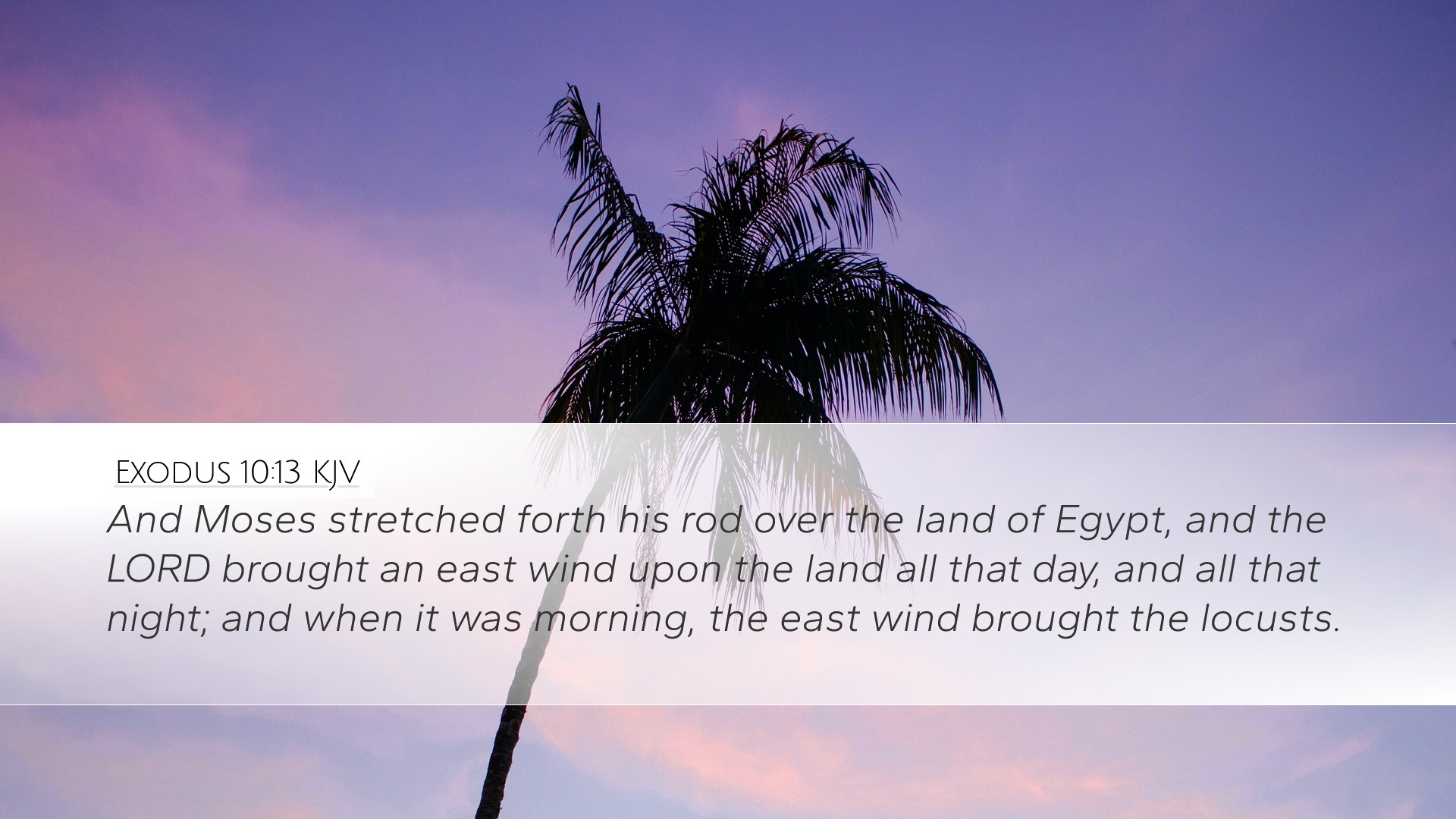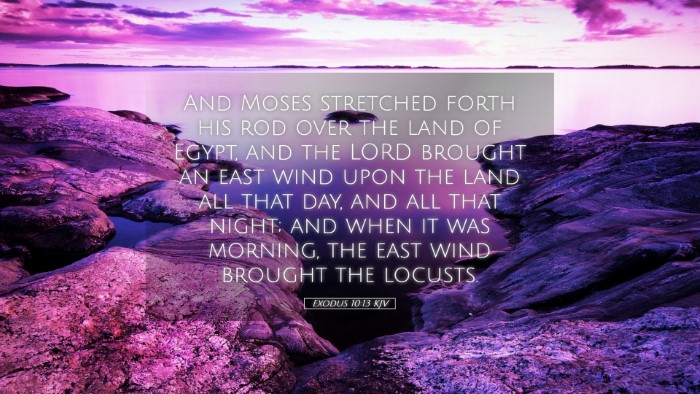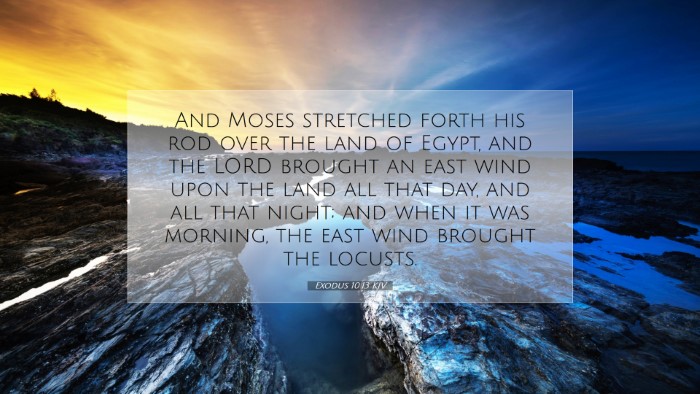Exodus 10:13 Commentary
Verse: "And Moses stretched forth his rod over the land of Egypt, and the Lord brought an east wind upon the land all that day, and all that night; and when it was morning, the east wind brought the locusts." (Exodus 10:13)
Contextual Background
The book of Exodus details the Israelite's enslavement in Egypt and their subsequent liberation through a series of divine plagues. Within the context of Exodus 10, God has already executed several judgments against Pharaoh and the Egyptian people, with each plague meant to demonstrate His sovereignty and power. The plague of locusts is the eighth of ten, a culmination of Israel’s oppression and a divine declaration against Egypt's idolatry and unyielding heart.
The Significance of the Rod
Matthew Henry notes the importance of Moses' rod as not merely a tool of action but as a symbol of God's authority. The stretching forth of the rod signifies Moses acting on God’s commands and the intermediary role he plays between God and Pharaoh. In the act of stretching forth the rod, there is a demonstration of faith and obedience, invoking God's power to intervene in the natural order.
The Role of the East Wind
Albert Barnes emphasizes the significance of the wind in the biblical narrative, particularly the east wind as a divine instrument for calamity. The east wind brought the locusts, indicating that God can use natural phenomena to accomplish His purposes. This act illustrates God's control over creation and His timing in executing judgment upon the Egyptians. The description of the wind blowing all day and night signifies both the intensity and the urgency of the coming locust plague.
The Locust Plague
When the east wind brings forth the locusts, it becomes a pivotal act of judgment aimed directly at Egypt’s agricultural prosperity, their economy, and sustenance. Adam Clarke highlights that locusts, as a plague, embody total devastation. They not only consume all that has been grown but symbolize the destruction brought upon those who resist God. The locusts are described as an army, emphasizing the organized nature of the destruction they bring upon the land.
Theological Implications
The events surrounding Exodus 10:13 provide profound theological insights for pastors and theologians. The use of natural elements, such as the wind and locusts, reveals God’s omnipotence and sovereign control over nature. This passage challenges readers to reflect on their own lives in the light of God’s sovereignty, warning against hardening one’s heart as Pharaoh did.
Divine Judgment versus Mercy
This verse serves as a reminder of the balance between God’s judgment and His patience. Each plague, including the locusts, serves not only as punishment but also as a call to repentance. God's relentless pursuit of Pharaoh’s heart illustrates His desire that none should perish but that all should come to repentance (2 Peter 3:9).
The Power of Obedience
Moses' obedience in stretching forth the rod reflects the necessity of human action in conjunction with divine intervention. God's favor upon the obedient underscores a recurring theme in Scripture – that believers are agents of His will, called to respond faithfully to His commands.
Practical Applications
- Embrace God’s Sovereignty: Recognizing that God is in control encourages believers to trust Him through adversity, understanding that He uses all situations for His glory.
- Respond to Divine Calls: Like Moses, we too are called to take action when prompted by God, recognizing the weight of responsibility upon us as His representatives.
- Repentance is Key: Seeing the patterns of Pharaoh’s heart provides a keen reminder for individuals and communities today. Repentance should not be delayed, as the consequences of hardened hearts lead to inevitable destruction.
Conclusion
Exodus 10:13 offers rich insights into the interplay of human obedience, divine authority, and the consequences of rejecting God's will. The locust plague stands not only as a historical incident but also serves as an allegorical lesson to contemporary believers. As students of the Word, it is imperative that we glean from these passages, applying their lessons to our spiritual journey and our proclamation of the Gospel.


